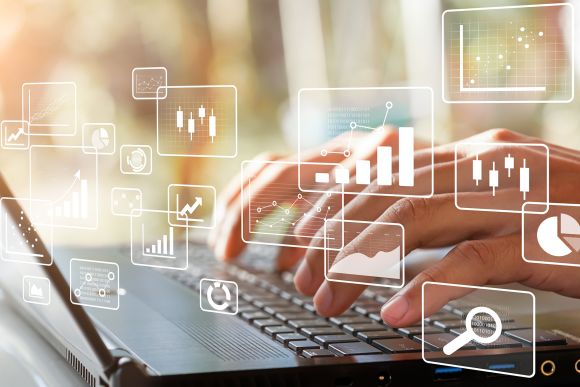You’ve probably heard about the rise of data analytics in the retail and restaurant industries, and if you’ve been reading this blog then you’ve seen some of the insights analytics can provide a company. With so many possibilities, have you ever wondered, “what am I missing out on?” We sat down with Buxton Senior Vice President, Tim White, to get an industry expert’s opinion on what analytics can do for you, and what you could be missing out on.
Data analytics has become a huge tool for companies, and it seems like the possibilities are almost endless with data. What are some of the most common applications of analytics in the retail and restaurant industries?
There are a lot of different things you can do, but the way we think about it here is to first determine who and where your customers are, and the value of each of those customers. With that information we do two main things for retailers and restaurants. First, we answer: how do I optimize my network? This is all about market planning. We can tell a company where to put a new location, where underperforming locations are and how to reposition or close those locations.
Second, we commonly do a lot with marketing services. So, we already know who and where the customer is, but now we answer how to target that customer, how to actually go out and talk to them to get them in your doors. It’s a 360-degree view of that customer that retailers and restaurants use the most.
That does answer important business questions for a company, but how do I know if my company needs analytics?
This to me is not a question. Every company needs analytics. From a personal stand point it is no different than wanting to know what you spend money on. When you check your bank statements to classify how you are spending money to make sure you have money at the end of the month, that is analytics. Don’t you want to know what you are spending money on? A company is the same way.
Companies need analytics to make better decisions on who their customers are, where to put a store, to understand the competitive presence and so much more. It does not matter if they have one store, ten stores or a thousand stores, the more information they have the better off they are on making informed decisions.
So obviously analytics is important, and we know that getting data is the first step to using data analytics. Can a retailer or restaurant have none of their own data and still be able to use data analytics?
Sure, there are all kinds of data sources out there, even if you don’t have your own location information or point of sale data or any other way to track customers. There are other ways to get data. We could geofence around your location and track who the customers entering that location are, or if you have more than one location then you have the performance data of how much revenue each location generates. Most folks who think they don’t have data actually do; they just don’t know it. Part of the educational process for us is to tell clients that they have data, and where they can find it. The data is out there; you just don’t know it exists.
We talked about the common applications of customer analytics for retailers and restaurants once Buxton gets their data, but what do you think is the most valuable thing analytics can tell a company?
Like I said before, there are a lot of different things data can do, but from our perspective I would say the most valuable thing is that it provides insights into what’s going on in your company. We can evaluate which locations are doing well and should be doing well based on the data and the model we have built, and then we can look at those locations that aren’t doing so well. We can say which of those poor performers have the potential to be a whole lot better than they are. This tells a company where to focus. It all goes back to that “who, where, value” of your customers so we can then evaluate your portfolio. Then you can know where to focus the time and energy of executive management, the costliest labor, to get the most out of a location.
Data analytics sounds like a valuable investment for any smart company, however we want to know if it’s really worth it. If a company isn’t using data what are they missing out on?
They don’t know what is going on. I mean they are running blind. Before analytics was a term, the common phrase was “I did by gut feel” and the cliché was that if it looked like a duck and walked like a duck then it must be a duck. Well, there have been a lot of mistakes made by people trying to make something look and walk like a duck when it isn’t a duck.
Analytics allows you to know what is really making your business work, so you don’t have to run on gut feeling. In today’s day and age, where things move so quickly, if you aren’t using analytics to understand what is going on then you will miss out. I always use the example of Blockbuster Video. They were a multibillion dollar company, a global phenomenon, and in a matter of a few years they ceased to exist. They weren’t using data to understand who their customer was, and where their customer was, and now they don’t exist.
Companies not using data are missing out on who their customer is, where their customers are going, how the company needs to adapt, what competitors are doing, and really on being smart about their businesses.
And there you have it. Analytics is a valuable investment for any company, and you don’t even need your own data to take advantage of it! To find out more about all the possibilities of analytics for your company, contact us today.


